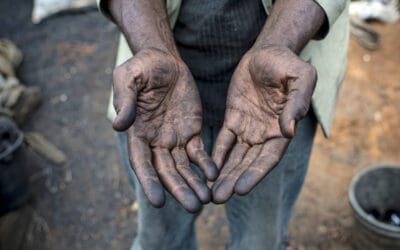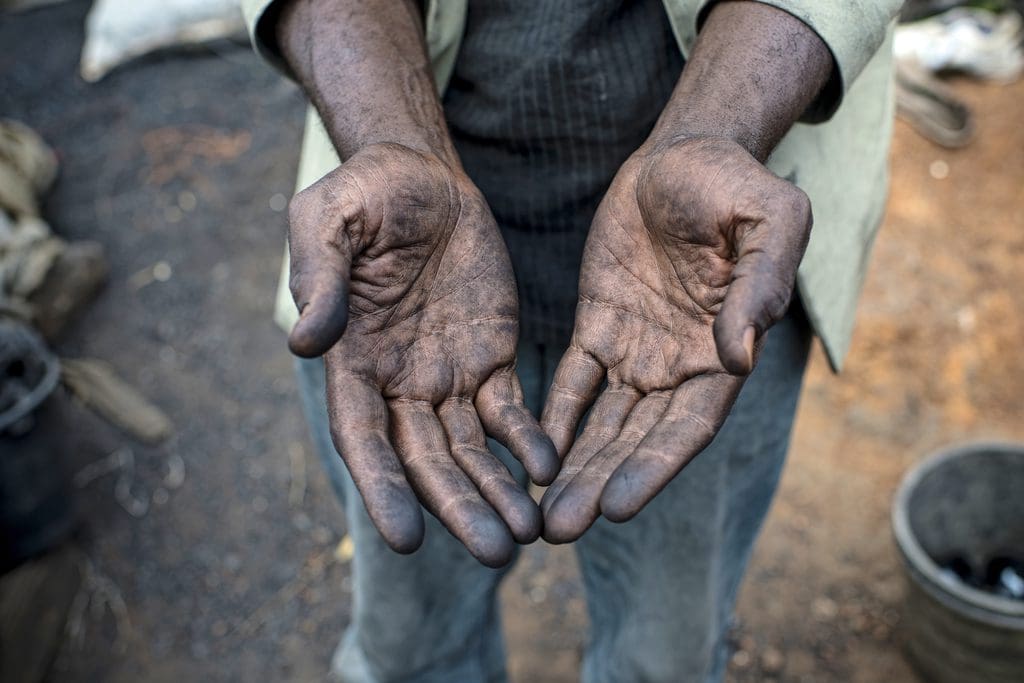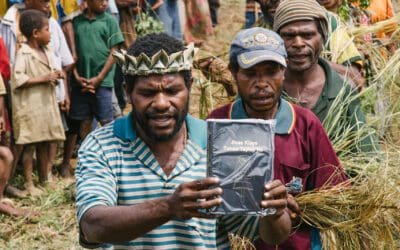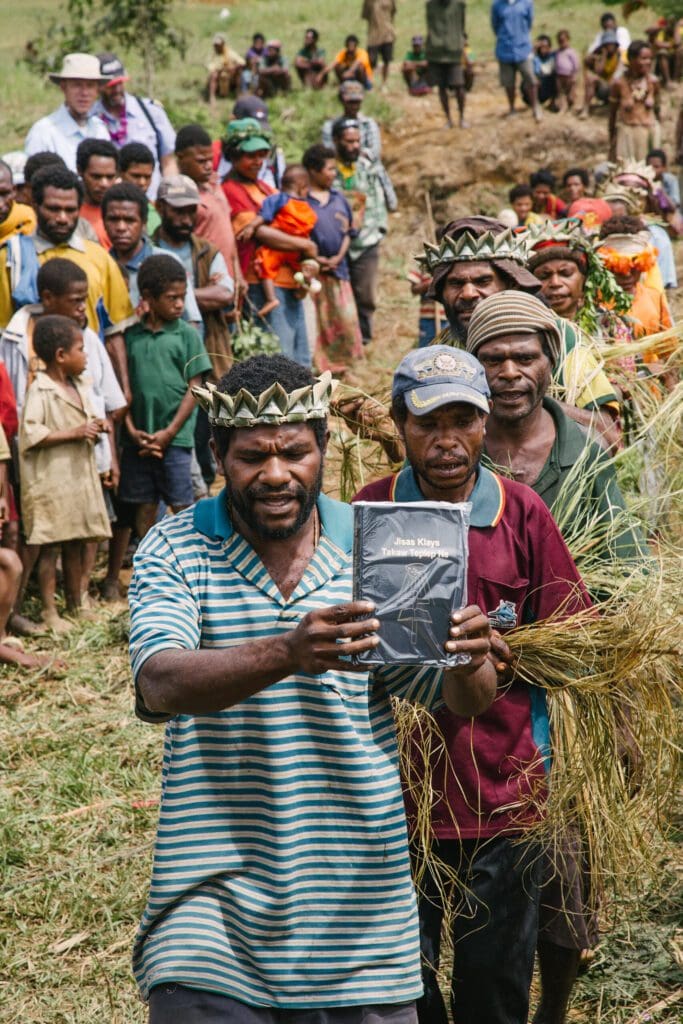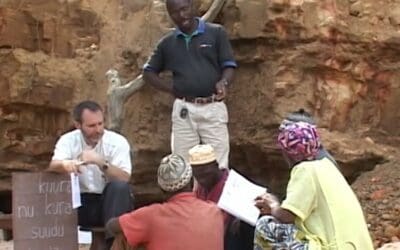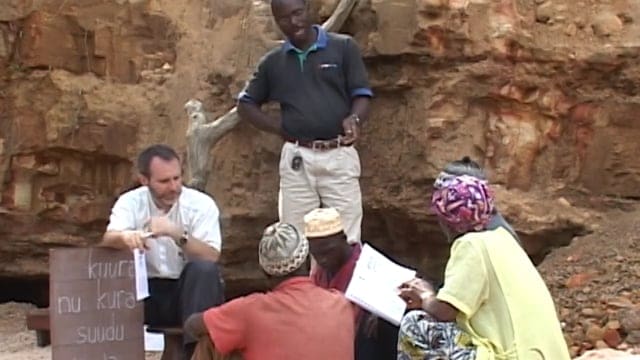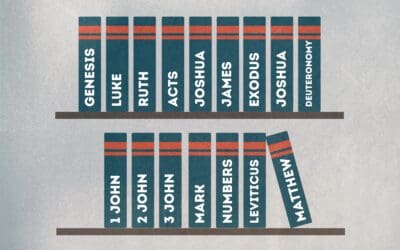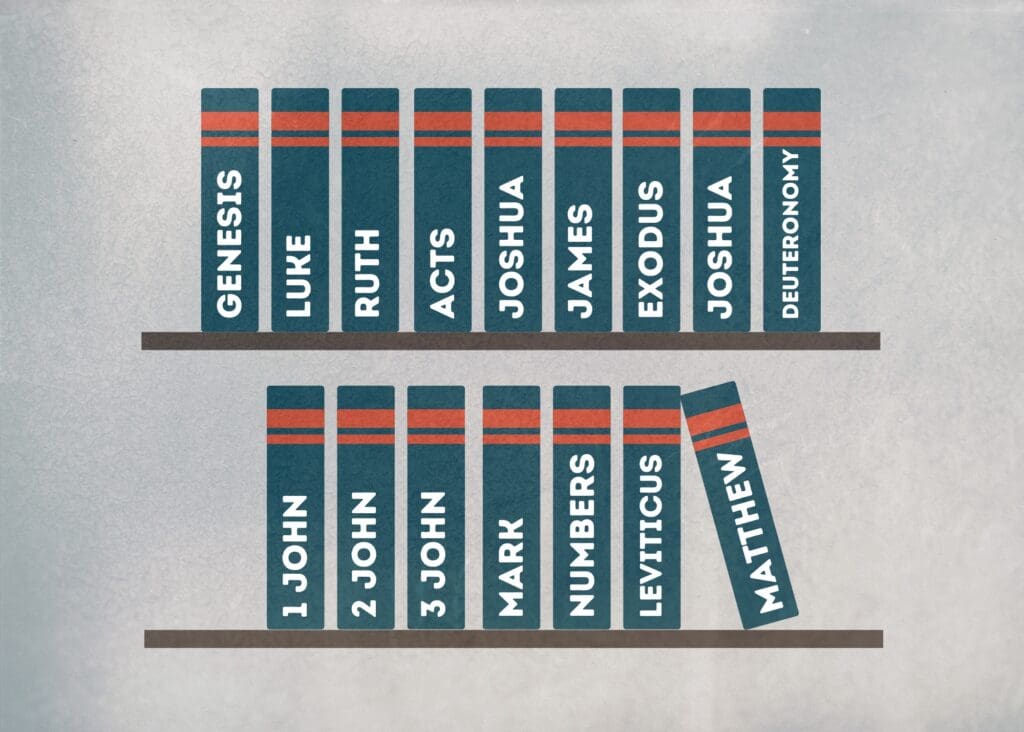One of the benefits of Pioneer Bible Translators’ ministry model is that we don’t have to do the hard work of Bible translation entirely on our own. The missionary team in West Africa isn’t especially large or experienced as my husband Chocho and I start translating. Yet teammates who have already wrestled with challenges we are about to encounter are coming alongside us to mentor and encourage.
And so it is that Mike, Chocho, and I are setting up shop on the large dining room table at a missionary guest house. The plan is for Mike to show us how he’s using features of the translation software we each have. He’s currently translating Leviticus into the Samka language, so that’s where we’ll start. Afterwards we’ll move into Chocho’s and my work in the Kawah language. We have a draft of Genesis, and our next step is to verify that it faithfully conveys the meaning and message of the original Hebrew text. Since Mike has already done this check for the Samka translation of Genesis, he’s able to walk us through the process.
As he waits for his laptop to finish booting up, Mike laments, “I’ve been having some pity parties for myself working on Leviticus. Those lists of unclean animals just about killed me. Like ‘rock badger.’ Do you know what the Samka call it? It’s a ‘boulder goat.’ Like I could ever have guessed that! What do the Kawah people call it?”
“Those lists of unclean animals in Leviticus just about killed me!”
“I have no idea,” responds Chocho. “But I’ll ask Jacques. If anyone knows a rock badger’s Kawah name, he will. He’s a great hunter.”
“Maybe we could show him the picture in our African wildlife book,” I suggest.
“You could try that,” Mike responds. “But you’ll want to double check his answer. Once I showed a picture of an anteater and got the word for ‘crocodile.’”
“Then there are all those animal parts for the sacrifices,” Mike continues. “Do you know how hard it was to come up with the Samka word for ‘gizzard’? We were so stumped that I almost asked one of the men to bring me a chicken so I could butcher it and pull out the gizzard. And then, after all the time we spent searching for the right word, I discovered that it’s used only one time!”
We hear subdued chuckles coming from the guesthouse kitchen.
“Then there’s ‘kidneys.’ Now that’s a productive word. It’s used 31 times in Leviticus. Once I’m sure I’ve got the correct word, I’ll really have something.” Mike pauses before continuing. “I have a word that might be the right one. But we need to double check when we get back to the village. It could be something way off!”
Laughter now pours forth from the kitchen.
“You think that’s funny, do you?” Mike retorts to the occupants of the kitchen, a smile in his voice. “You church planters don’t have to worry about Leviticus. You can just gloss right over it. But, no. Not us Bible translators. We’re stuck dealing with it.”
By this time, Mike has the Samka draft of Leviticus open on his computer. We work through a few chapters together, noting how Mike marks his questions and suggestions. Now it’s time to take a break.
As we sit sipping our soft drinks, Mike ponders aloud. “You know, I’ve spent a lot of time feeling sorry for myself working on Leviticus. But the more I’ve gotten into it, the more I realize how much of the culture here in West Africa resembles the culture of Biblical times. Just think of all the food regulations, cleansing rules, and sacrifices in Leviticus. People here understand all that because of all the rituals their religion expects them to follow. They know what ‘law’ is.”
Chocho and I nod our agreement as Mike continues in a reflective tone. “But sacrifices here are so different from the sacrifices and offerings in the Old Testament. None of the sacrifices in the Samkas’ traditional culture take away sin. Not one! Without Leviticus, they will never know about all the sin offerings. They will never understand how Jesus became the Lamb of God who takes away the sins of the world.”
God has filled His Word with great treasures in the most unlikely places — yes, even in Leviticus.
At this thought Mike breaks into prayer. “Thank you, God, for making Your only Son, who knew no sin, to become sin for us. May the Samka and the Kawah come to accept Christ’s sacrifice soon.”
“Amina,” Chocho and I echo, using the Arabic word for “amen.”
I pray silently as we shift our attention from Samka Leviticus to Kawah Genesis. “Thank you, God, for Your inspired Word. Thanks for the privilege of translating it for others. You’ve filled it with great treasures in the most unlikely places — yes, even in Leviticus.”
For the protection of the translation projects mentioned and the people involved in them, pseudonyms have been used. This article is an edited version of a story originally published by Christian Standard, May 5, 2002.

